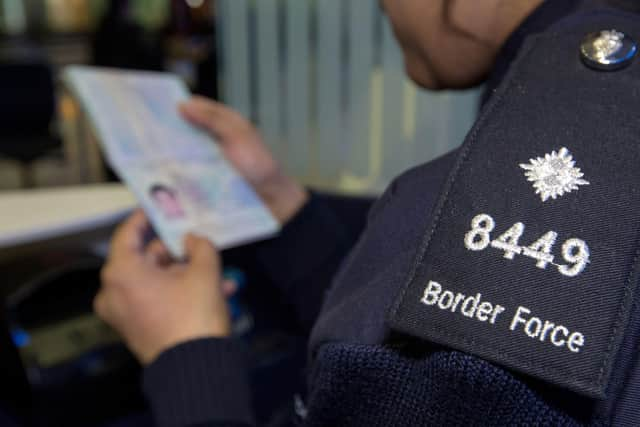Electronic Travel Authorisation scheme won’t hit tourism says Sir Jeffrey Donaldson
and live on Freeview channel 276
Sir Jeffrey Donaldson said the alternative to using the electronic travel authorisation (ETA) scheme for cross-border travel would be applying it to journeys from Northern Ireland into the rest of the UK.
Under new post-Brexit immigration and border control legislation going through Westminster, non-Irish EU citizens living in or visiting the Republic of Ireland would require an ETA to cross the border into Northern Ireland.
Advertisement
Hide AdAdvertisement
Hide AdThe visa-waiver style scheme, which would be similar to the one used in the US, would not apply to Irish or UK citizens, who are guaranteed free movement around the island under the terms of the long-standing common travel area (CTA) agreement.


The UK government has insisted the ETA process will be simple and will not involve physical checks on the border.
However, the Irish government has expressed concern and asked for the island of Ireland to be treated as a special case.
Sir Jeffrey was asked about the issue yesterday at a pre-Assembly election event in Belfast organised by the Northern Ireland Chamber of Commerce (NI Chamber).
Advertisement
Hide AdAdvertisement
Hide AdHe was asked whether DUP plans to make tourism a £2bn industry would be undermined if tourists visiting the Republic of Ireland were put off travelling north as a result of the new bureaucracy.
The Lagan Valley MP said if ETAs were not required on cross-border travel, then they would be needed for NI to GB travel.
“Let’s be clear on this – the government will carry out checks on the movement of people within the common travel area and I don’t want that to be at the point of entry between Northern Ireland and Great Britain, because that adds further to our difficulties in terms of our connectivity with the rest of the UK, which is our biggest market,” he said.
“I don’t think this will impact on tourism. I think that if we’re sensible and there’s a sharing of information within the common travel area about the people entering the common travel area we can minimise any friction that may arise from the need to ensure that we understand who’s coming into the CTA.”